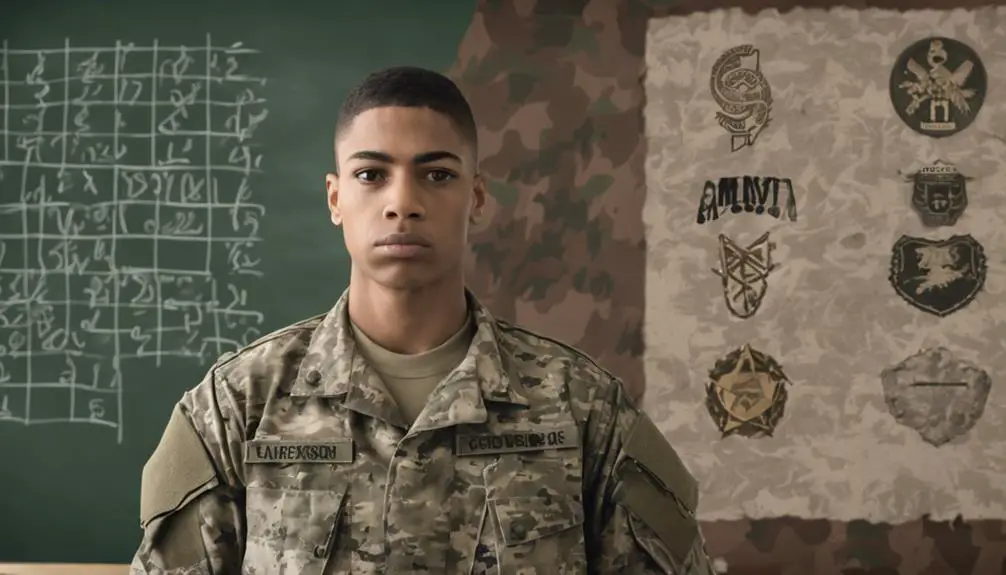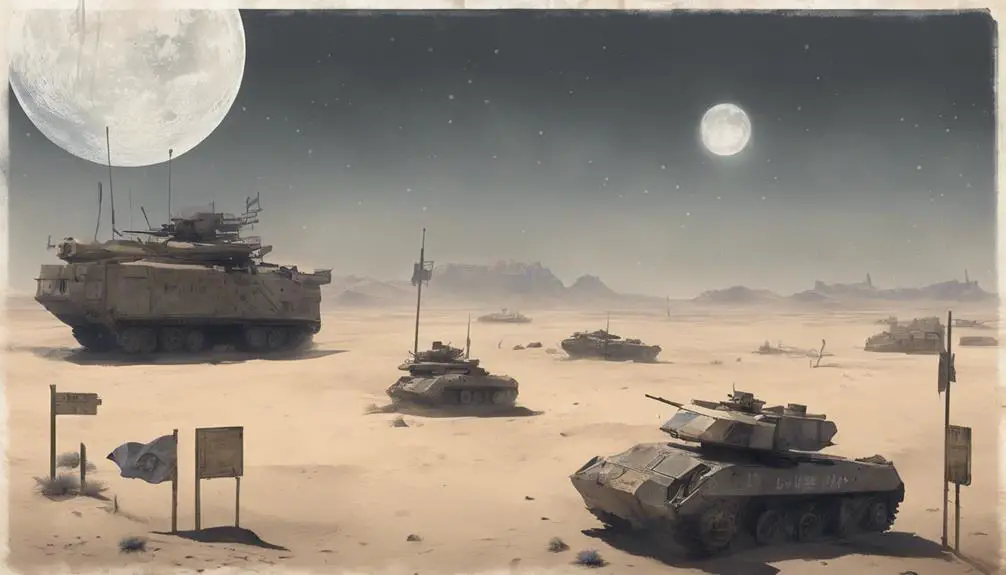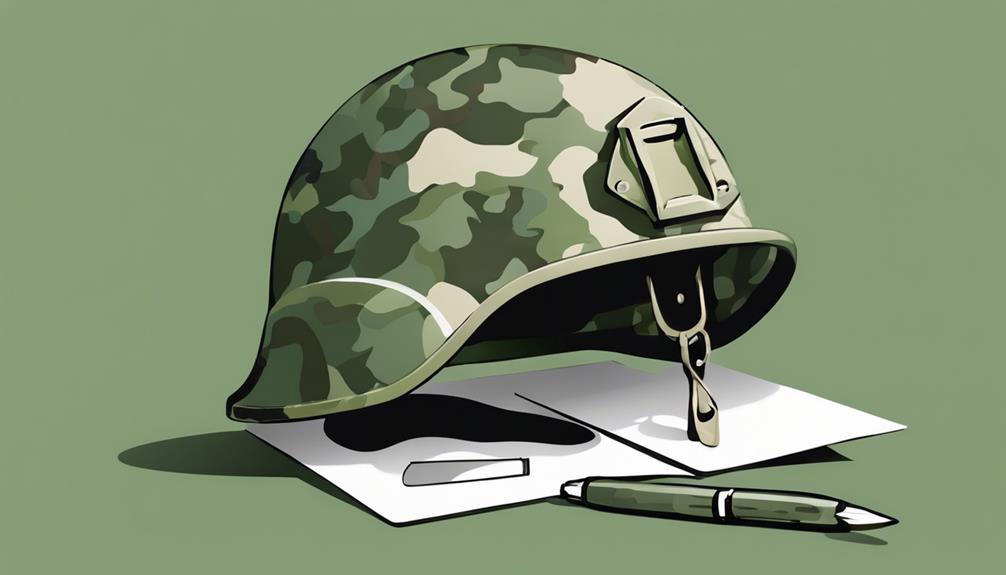You're about to crack the code of military slang, a language that's been shaped by history, cultural exchange, and the need for speed and stealth. From World War I to modern-day operations, military slang has evolved to facilitate quick and discreet communication. You'll discover over 100 buzzwords used daily in military ops, code words for combat zones, and acronyms that convey complex info quickly. As you explore the world of military lingo, you'll uncover the nuances of military communication and gain a deeper appreciation for the culture behind it. There's more to uncover – what's next?
Decoding Military Lingo

When you're immersed in a military environment, you'll quickly realize that understanding the lingo is essential to effective communication. Military slang, with its unique vocabulary and phrases, is more than just a way to sound cool – it has significant cultural significance and historical roots.
The language has evolved over time, influenced by various factors such as geographic location, branch of service, and cultural background.
The use of military slang dates back to World War I, where it was used to quickly convey complex information in high-stress situations. Since then, it has become an integral part of military culture, serving as a way to build camaraderie and establish a sense of belonging among service members.
Understanding military slang isn't only vital for effective communication but also for building trust and rapport with fellow service members. By grasping the nuances of military lingo, you'll be better equipped to navigate the complex world of military communication, where clarity and precision are paramount.
Battlefield Buzzwords Explained
You'll frequently encounter over 100 battlefield buzzwords and abbreviations in daily military operations, from 'HOOAH' (an expression of enthusiasm or approval) to 'FOB' (Forward Operating Base). These buzzwords are an essential part of military communication, and understanding them is vital for effective teamwork and mission success.
As you explore further into the world of military slang, you'll notice that some terms are rooted in Military Myths, while others are simply creative expressions coined by Soldier Slangsters. For instance, 'BOHICA' (Bend Over, Here It Comes Again) is a tongue-in-cheek term used to describe a frustrating situation, while 'SITREP' (Situation Report) is a more serious term used to convey critical information.
Mastering these battlefield buzzwords will help you better comprehend military communication and avoid confusion. By familiarizing yourself with these terms, you'll be better equipped to work alongside military personnel and stay informed about ongoing operations.
Origins of Military Jargon

As you explore the military's linguistic landscape, it becomes clear that military jargon has its roots in a complex mix of historical events, cultural influences, and practical necessities. You'll discover that the Historical Evolution of military language is a rich tapestry woven from various threads.
From ancient Rome's Latin phrases to modern-day slang, military jargon has borrowed from diverse linguistic roots. You'll find that military terminology has been shaped by cultural exchange, technological advancements, and the need for secure communication.
Throughout history, military forces have adapted and modified existing languages to create unique dialects. For instance, the US military has incorporated words from Native American languages, African American Vernacular English, and even Hawaiian Pidgin. This blending of languages has resulted in a distinct linguistic identity that's both functional and fascinating.
As you investigate further into the origins of military jargon, you'll uncover a complex web of influences that have shaped the way service members communicate. By understanding the Historical Evolution and Linguistic Roots of military language, you'll gain a deeper appreciation for the complexity and richness of military slang.
Slang for Speed and Stealth
In high-stakes operations, service members rely on slang to convey important information quickly and discreetly, often using code words and abbreviations to convey speed and stealth. You might hear phrases like 'Rapid Insertions' to signal a quick deployment of troops or 'Covert Ops' to describe a secret mission. These terms are essential in high-pressure situations where every second counts.
| Slang Term | Meaning |
|---|---|
| Rapid Insertions | Quick deployment of troops |
| Covert Ops | Secret mission or operation |
| Fast-Mover | High-speed aircraft or vehicle |
| Sneak and Peek | Surveillance or reconnaissance mission |
In these situations, using the right slang can be a matter of life and death. It's important to convey complex information quickly and accurately, without giving away the operation's details to the enemy. By using code words and abbreviations, service members can maintain secrecy while still conveying important information. This specialized language allows them to work efficiently and effectively, even in the most intense situations.
Code Words for Combat Zones

When operating in combat zones, service members rely on code words to clearly communicate their location, mission objectives, and potential threats without alerting the enemy. You're not just talking to your buddy next to you; you're conveying critical information to multiple teams across the battlefield.
To achieve this, military units use Zone Designations, assigning specific codes to distinct areas of operation. You might hear 'Bravo-17' or 'Echo-9' – each code corresponding to a precise geographic location or tactical objective.
- Zone Designations help troops navigate complex environments and prioritize targets
- Combat Nicknames are used to identify friendly units, distinguishing them from hostile forces
- Code words can also convey threat levels, warning of potential dangers or identifying enemy positions
- In high-pressure situations, these code words enable clear, concise communication, reducing errors and saving lives
Cracking the Code of Acronyms
You'll frequently stumble upon acronyms in military communication, which can be confusing if you're not familiar with the lingo. As you delve deeper into the world of military slang, you'll notice that acronyms are an integral part of the communication process. They're used to convey complex information quickly and efficiently.
The evolution of acronyms has been remarkable, with new ones being added to the lexicon regularly. To crack the code, it's essential to understand the context and purpose behind each acronym. Here are a few examples:
| Acronym | Meaning | Context |
|---|---|---|
| COC | Combat Operations Center | Tactical Operations |
| EOD | Explosive Ordnance Disposal | Bomb Disposal Unit |
| FOB | Forward Operating Base | Military Base |
| IED | Improvised Explosive Device | Explosive Device |
| SOP | Standard Operating Procedure | Military Protocol |
Frequently Asked Questions
Is Military Slang Used Exclusively in the US Military?
You might think military slang is unique to the US military, but that's not entirely true. Historically, military slang has its roots in international applications, with languages like French and German influencing terminology.
While the US military has certainly contributed to the lexicon, you'll find similar slang used by militaries worldwide.
In reality, military slang is a global phenomenon, shaped by cultural exchange and shared experiences on the battlefield.
Can Civilians Use Military Slang in Everyday Conversations?
As you navigate the nuances of language, you wonder if civilians can borrow from the military's linguistic arsenal. The answer is, absolutely! You can inject civilian coolness into your conversations by sprinkling in military slang.
Don't worry about crossing language boundaries; it's not about pretending to be a soldier, but about adding flavor to your everyday chats. So, go ahead, 'hump' that phrase into your vocabulary – just be mindful of your audience and avoid confusion.
Are Military Slang Terms Universally Understood Across Branches?
You're wondering if military slang terms are universally understood across branches.
The answer is, not quite. Different branches have their own dialectics, with unique nuances that can lead to misunderstandings.
For instance, what means one thing in the Army might mean something else in the Navy.
Inter-service nuances can cause confusion, so it's essential to be aware of these differences to avoid miscommunication.
Do Military Slang Terms Vary Across Different Ranks?
You might think that military slang is a universal language, but the truth is, it's not that simple.
When you move up the ranks, you'll notice that Enlisted nuances and Officer colloquialisms differ greatly.
Enlisted personnel use slang that's more casual and relaxed, while Officers tend to use more formal, technical terms.
This variation in slang highlights the distinct cultural differences between the two groups, making it essential to understand these differences for effective communication.
Are Military Slang Terms Ever Used in Formal Military Communications?
You might wonder if military slang terms ever make it into formal military communications. The answer is, rarely. Formal jargon and official lexicon are typically reserved for official documents and radio transmissions.
While slang might be used in casual conversations, formal communications stick to standardized language to avoid confusion and guarantee clarity.
You can expect to see formal language used in official reports, orders, and announcements, leaving slang for informal chats.
Conclusion
You've deciphered the code, maneuvering through the complex world of military lingo like a pro.
You've mastered the art of decoding battlefield buzzwords, tracing the origins of military jargon, and deciphering code words for combat zones.
With this newfound expertise, you're now equipped to communicate with precision and stealth, moving swiftly and silently through the ranks.
The fog of war has lifted, revealing a world of clarity and understanding.







